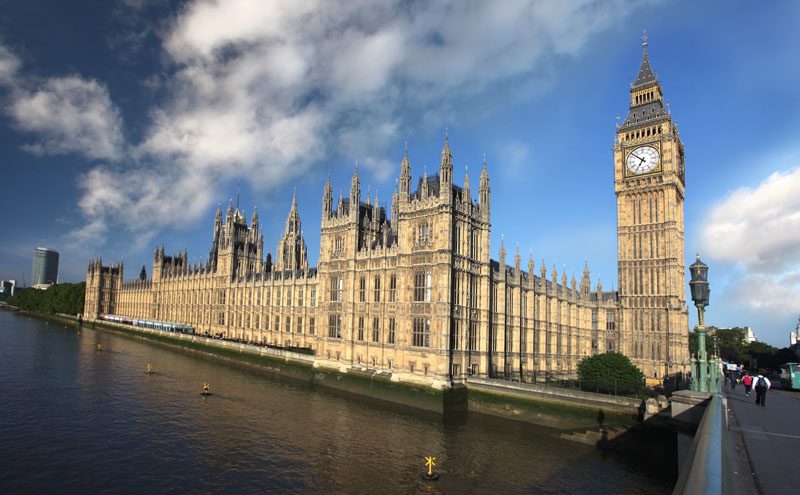
The UK Government has set out a new strategy that appears to outline how it will tackle climate change while driving economic growth.
Announced on 12 October, “The Clean Growth Strategy” earmarks over £2.5 billion of investment to reduce carbon emissions, through support for renewable energy and energy efficiency measures.
A press release from the Government about the announcement references PwC’s recent findings that carbon emissions in the UK have fallen and national income risen faster and further than any other nation in the G7 – since 1990.
The announcement included details of programmes for low carbon initiatives in energy, transport, agriculture and waste. Commitments include an earmarked spend of £1 billion to support the take-up of ultra-low-emission vehicles, including helping consumers to overcome the upfront cost of an electric car
There are also plans to work with the offshore wind industry to develop an ambitious deal for the sector, which could result in 10 gigawatts of new capacity, with the opportunity for additional deployment if this is cost effective, built in the 2020s.
Commentators in the sustainability sphere welcomed the announcement and hoped it signalled a move away from a period in which such programmes have more often been subject to cuts or an unpredictable investment landscape.
Nick Blyth, Policy Lead at IEMA, appeared to receive the news warmly while acknowledging the frustration many have felt recently with ‘stop-start’ policy approaches – such as the uncertainty regarding future company reporting, withdrawal of support from zero carbon homes and the loss of Carbon Capture support in 2015. “It is encouraging that some commitments are returning through this new plan, and we are also hopeful to see signs of a more joined-up approach. IEMA members would also welcome and support further development for a much more lasting policy landscape. This is essential in providing confidence for business and investors, and in continuing the UK’s journey to a pioneering, prosperous zero carbon economy.”
The Energy Institute’s CEO Louise Kingham also issued a note of welcome, and said the strategy “breathes new life into decarbonising the UK and the skills that will make it happen”. However, she hit a similarly circumspect note on the need for policy consistency: “Hitting 57% emission reduction by 2030 in a cost-effective way, and realising the big industrial wins that come with that, calls for a no-surprises investment climate.”
Some observers clamoured for extra details. Philip Sellwood of the Energy Saving Trust, also welcomed the strategy, and the commitment to making domestic energy a priority, but added: “Aspirations for all homes to reach an EPC ‘C’ standard by 2035 are very welcome but details on how this will be realised now have to be made an urgent priority. We now need a detailed plan setting out how we will make our homes low energy, affordable to run and healthy to live in. This means incentives for all of us to invest in home energy upgrades, a doubling of funding to help people out of fuel poverty and a commitment that all new homes are built to a zero carbon standard.”
Richard Gueterbock, Director of UK bio-energy firm Clearfleau, was welcoming of the announcement but also eager for specific details, in this case where his own sector is concerned. He said he was pleased that the Clean Growth Strategy will encourage business models which encourage resource efficiency and offers support for switching to lower-carbon fuels. “But this also requires specific measures to help SME businesses, in sectors like food and drink manufacturing, invest in on-site generation of bio-energy from process residues, to reduce both costs and carbon emissions. Large multinationals are already investing in low carbon manufacture but smaller companies need external support. This is a sector where the UK can take a lead but it needs seed funding to support British companies active in the sector, help develop low carbon systems and related technology, exploit potential export markets and create more engineering jobs.”
Where solar is concerned, the sector’s trade organisation, the STA, appeared bemused that the strategy announcement offered “limited early opportunities for solar power, despite solar’s status as the UK’s most popular energy source, and as one of the cheapest, with the largest future world market.”
“While the astonishing cost reductions in solar are cited several times in the Strategy there are no explicit new measures to boost current deployment which has plummeted and which has been kept afloat by progressive planning policies by some local authorities. The industry has been waiting over a year for clarity on the FIT Review and the clean power auctions. Major job losses have been incurred in the industry which employed 34,000 people just a few years ago.”
STA Policy Manager Chris Hewett said: “It does seem extraordinary that when a technology as vital to the world’s future as solar is asking, not for any new public support, but for simply a level playing field with other technologies that the Government is not moving to respond. This technology will dominate global power supply in years to come so in the interests of UK plc, the Government needs to stop putting the UK solar industry at a competitive disadvantage.”







